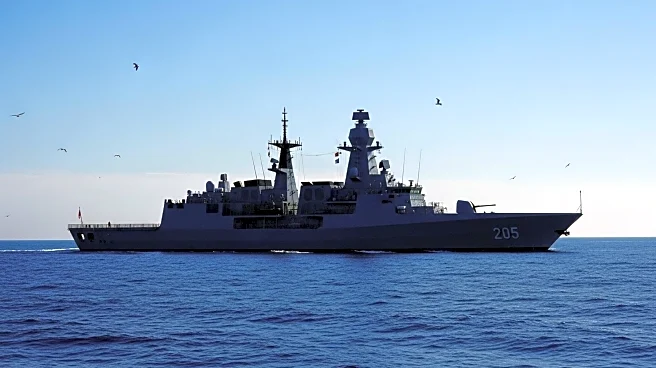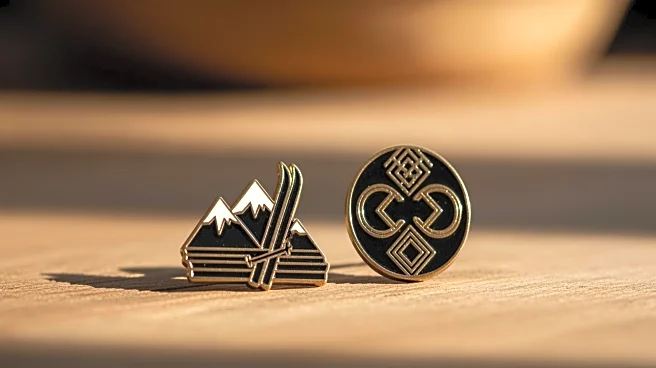What is the story about?
What's Happening?
The Norwegian government has announced a significant defense procurement deal with the United Kingdom, selecting British-made Type-26 frigates for its navy. This $13.5 billion agreement marks Norway's largest defense investment to date, involving the acquisition of at least five warships from BAE Systems. The decision follows a nine-month bidding process, during which Norway considered options from France, Germany, and the United States. Norwegian Prime Minister Jonas Gahr Støre emphasized the strategic partnership with the UK, noting the importance of interoperability and cost efficiency. The frigates, designed for anti-submarine warfare, will be equipped with helicopters, although the specific type has not been decided. The deal also includes plans for joint training and interchangeable crews between Norwegian and British vessels.
Why It's Important?
This deal is a major boost for the British defense industry, particularly BAE Systems, as it secures a substantial contract amidst international competition. For Norway, the acquisition of these advanced frigates enhances its naval capabilities, particularly in anti-submarine warfare, which is crucial given the strategic importance of the Nordic region. The interoperability between Norwegian and British forces could lead to more efficient joint operations and maintenance, strengthening defense ties between the two nations. This move also reflects Norway's commitment to modernizing its military assets in response to evolving security challenges.
What's Next?
The initial deliveries of the frigates are expected to begin in 2030, with Norway planning to operate them for several decades. The focus will be on maximizing interoperability and cost efficiency, potentially leading to further collaboration between Norway and the UK in defense technology and training. The decision on the type of helicopters to be equipped on the frigates remains pending, which could influence future procurement strategies. Additionally, the deal may prompt other countries to consider similar strategic partnerships for military procurement.
















